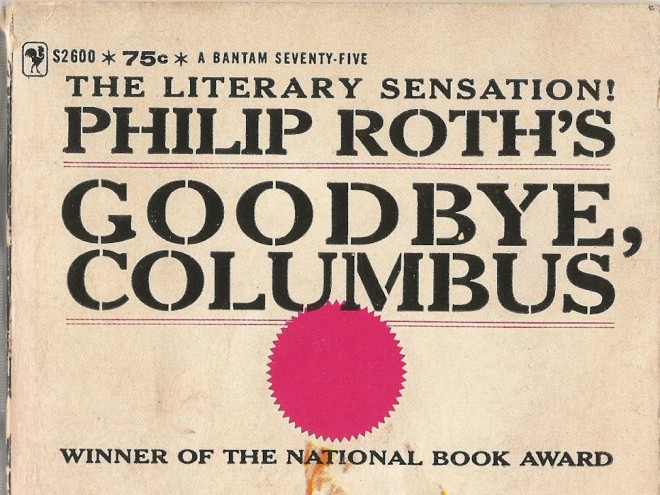
::THE CAVES::
The way out to The Caves cut back through the center of town. Six blocks from the traffic circle Mt. Izmir released its purchase on commerce and succumbed to rural Ohio. Those six blocks carried the aging bodies of behemoth Victorians, pastels dulled by decades of winter and rain. The splendor of these variegated anachronistic houses was tempered only by the yellow murk of the bulging lawns that occluded them from the streets of town, the sense that they were just a meter or so too low from being elevated to a more regal plain. There was snow, but it was Ohio snow, not the reifying snow of mid-Winter New England, February Buffalo.
Beyond these heirlooms a hill climbed northeast out of town. On the median strip on the main street from Mt. Izmir, an Amish man pulled a horse by the reins, hand near the bit, the lightest tug of the brown flesh of horse nose molding itself to metal. The horse trailed behind it a buggy. Three Amish kids sat in the back with their wares, bread and sweets, to sell at the center of the college campus, as Zeke remembered them on weekends. Nothing changed in a decade. Like Johanna said, time barely even a thing here. All the boys wore the same black flat-brimmed hat and the same flowing puffy shirt as their father. On the back of the buggy were two red lights, the only electronics on the whole cart.
Soon Zeke found his way past Izmir’s outskirts. There was a heavy nostalgia for him, alone and free behind the wheel of a rental sedan here, the first time he’d been back to the town outside his alma mater since graduating, when he and Johanna had just broken up for good. Gram had been his respite then — they would stay up until the sun rose playing guitars, drinking a jug of Carlo Rossi or a fifth of Jack, jumping off trestles into shallow water. Whatever inhibitions Zeke had then, Gram had forced him to shed them. It occurred to Zeke that this was how grief worked: the real memories, the nuance obscured by time and language, were a private encounter. Even trying to share them over coffee with Declan and Johanna felt a poor simulacra. Was. What might have been a full swell of nostalgia even now was forestalled by the image of strangled Osman, a boy about the age he was when he arrived here for college, which kept blocking, then overshadowing, memory; kept coupling with an image he’d created of Gram just before he plunged to his death onto the interstate outside of Columbus. A surge of ugly sooty emotion buzzed to his fingers. He looked out his window and attempted to shake it. All he could do was observe. First were long slow fields of yellow where the snow had yet to stick. Yellow grasses drying in the snow, yellow cornhusks worn raw by long wearying winter. When he had begun at the magazine ten years earlier, Zeke had used a microcassette recorder for oral notes. Now his iPhone contained all the same technology. He held it to his mouth and said: “Note yellow fields specked with white. Along Turkish Road an inlet where Gram once lost control of his truck on a late drunken night but came out unscathed. Gram always came out unscathed.” He paused. “Always did.” Paused again. Breathed. This wasn’t a story about Gram, and needed not become one. “Note decrepit houses. Note decrepit barns. Corn cobs like nubs of worn down teeth. Remember — well — remember memories.”
Ten miles out of town he came upon the sign Yehoshua Green told him in the email he’d see, handwritten on a wooden plank: “The Caves.” A low mist rose off the slow-moving Bosperous Creek, expansive and warm in the cold of day. As the road went east the flat fields of rural Ohio became hilly gorges, lifting away from the river. As the trees grew thicker and the inclines rollercoastered, Zeke turned left onto Caves Road. He was moving through a gorge and back toward the creek. Off in the distance a hill sparsely covered by trees, like the last lonely hairs on a nearly bald head, rose above the near horizon. He was just about here. He put his brights on, rolled down all four windows of the car, and put Matisyahu’s “One Day” on his Spotify.
Ten miles out of town he came upon the sign Yehoshua Green told him in the email he’d see, handwritten on a wooden plank: “The Caves.”
Zeke turned onto Shebbtai Road where he encountered all at once: An RV with an immense airbrushed painting of the face of Nathan Fritzman, Natan of Flatbush, Hebrew lettering atop the image; two trailer homes in the near distance; a single two-story colonial set back from the road; and in front of each of these buildings, men in traditional Hasidic garb carrying automatic rifles.
Johanna had not mentioned the gun-toting Hasids.
Yehoshua Green had not either.
There were a half dozen of them, each indistinguishable from the other for their beards and peyes and black suits and tall black-brimmed hats. Very much unlike the Amish, they wore tallit under their black jackets and on their heads and hands were the boxes and flapping leather straps of phylacteries. Zeke stopped the car and put his hands flat on the dash of the Honda Civic as Green had instructed in the email. Five of the Hasidim walked to the shotgun side of the car maybe twenty paces back. The sixth walked up with his rifle at his hip, pointed toward the rocky Ohio ground, and approached.
“I’m the reporter from the magazine in — in New York— here to meet with Yehoshua Green. He knows I’m coming. He told me to. To do this. In an email. Told me. This was the way to do it.”
There was a long tense pause. The two men outside his window looked at him skeptically. Then looked at each other. Zeke wished he’d put the Matisyahu volume up louder.
“We don’t have plans to let anyone in here,” the first of them said. He was up close enough now that he could see that though this Hasid wore a black hat and carried an AR-15, he was maybe twenty years old. Looked five years younger. Flecks of toothpaste still crusted on the corners of his young mouth.
“Yehoshua told me to come,” Zeke said.
“Yehoshua didn’t tell us shit,” the Hasid said. He put his hand down near the trigger of the automatic rifle. He moved it so the long barrel of the gun was now pointed on an angle that looked like it met Zeke’s feet in the rental car. Zeke liked his feet.
“Ok,” Zeke said. “But could you maybe call him, or — ”
“Look!” the Hasid said, raising his voice. “Listen. You’re not listening. I said there’s no one coming in and out of here today so put your fucking little sedan here in reverse, and — ”
Before he could finish his sentence, a voice came across the field.
“We’re good here!” Tromping out from one of the trailers Zeke saw at the edge of the property was a thin man about his age, more formally dressed — he had a hoodie under his black jacket, no hat. The Hasid looked at him as he came up to them.
“You didn’t say we had anyone coming,” he said.
“I didn’t?” the guy in the hoodie said. “I guess I didn’t. But I meant to. And I’m saying now. We’re good here.” He looked at the younger man. Hard.
“We’re good here,” the Hasid said. He put his AR-15 back on his shoulder, and the five other men with him were now walking away from the car.
“Sorry about all that,” the hoodie guy said. His voice was in tenor, timbre, and accent almost exactly the voice of Mike D from the Beastie Boys. “I’m Josh, Yehoshua, the one you emailed with — very good to meet you brother.” Yehoshua put out his hand and shook, and he pointed to a paved driveway running up to the trailer closest to where he now stood. “Just pull on in so you’re not blocking the way.”
::
The trailer smelled of incense, patchouli oil, expensive weed, and laundry drier sheets. Zeke told himself: remember the smells. He didn’t dare pull out his notebook to record it. The space was divided into three rooms by particleboard laminate partitions. The middle room had two dun brown couches facing each other and against the far wall a 72” curved flat screen television, muted, showing the previous night’s SportsCenter. From the room behind it came the soft busy basslines of Marvin Gaye’s What’s Going On? Just as Zeke was sitting down, Yehoshua came back into the room with cans of Bell’s.
“Two-Hearted or Expedition Stout?” Yehoshua said.
“Oh, thank you Yehoshua,” Zeke said.
“Which.” Zeke said Two-Hearted. “Just call me Josh.” Zeke said fine, and Yehoshua handed Zeke the beer. “I guess I need to apologize for all that back there. The guns and all. We’ve had them throughout, of course — everyone out here does. Second amendment! And they’re so easy. You just walk into a Walmart and there they are. But. But since the… the events with Osman… we’ve had to be more careful.”
“You said over email.” Zeke popped the top of his can and the hissing sound calmed both their nerves. In a corner of the room sat yet another AR-15, leaning against the wall.
“Just think — if we were meeting in Judea and Samaria, everyone would be carrying. I was six the first time I went to Yerushalayim, and I remember how scared I was at first, seeing all the machine guns. Women with Uzis. But hey, the Israelis invented the Uzi. Maybe we won’t need them once the world recognizes Natan as meshiach. But this is all too far along already — first things first, as the Ohioans like to say. So: wow it’s good to meet you.” The sound of Marvin Gaye’s voice rose in the room next door saying, Momma momma, there’s far too many of you dying/we’ve got to find a way… and Yehoshua yelled, “I need you to turn that down we have a guest here— a distinguished guest!” A vein popped out in the middle of his forehead while he shouted. Then turned back to Zeke and again smiled. The volume dipped so only the bass was audible. “Sorry. She loves ‘70’s soul. Sometimes I can’t get her to turn it down.”
“What’s your wife’s name?”
Yehoshua looked at him sideways. “Devorah. You’ll meet her. When she’s properly covered. For now we have so much to catch up on, coolo tov!” Yehoshua stopped for a moment and took Zeke in again. “What happened to your face?”
Zeke put his hand to his eye. He’d forgotten about the bandage above his eye amid all the guns and Hasids. Stitches were pulling at skin, making it more uncomfortable than ever. He said it was nothing, not much of anything at all, a little accident from the way in.
“I suppose an injury like this is a token of memory for you when you’ve left. Where do you think Natan stands on the secular struggle here? Did you meet with the Franklin woman in Mt. Izmir? I read the documents about Smith vs. Employment Division that you sent. I agree that if the Indians get to eat peyote and call it religion, surely the Eighteen Commandments must cover the meshiach!”
Yehoshua was moving very fast.
“Well I’m just getting started here,” Zeke said. “Normally I would be deep into research, but I only heard of your situation for the first time today. So maybe you could tell me a little about your community first.”
“Right, how stupid — ” Yehoshua said. “Let me give you at least the basics.” So while Yehoshua talked, Zeke took notes, which would go directly into the Slack when he left. Here’s how he recorded it on the notes app of his phone:
–This sect was called the Dönme
–A hundreds-years-old sect of Jewish mysticism, who outwardly practiced Islam.
–Just before his death in the late 17th century, Shebbtai Tzvi, false messiah of Natan of Flatbush and his followers, was found in a cave in Albania and at the mouth of the cave his disciples discovered a dragon ensconced by massive bright light.
–When a Turkish immigrant, a practicing Dönme named Mehmet Osman, had come to Ohio, he had chosen to live out at The Caves when he arrived here just after WWI, in 1919.
–The Dönme lived there still, now led by Natan of Flatbush
When Yehoshua finished talking and Zeke finished thumbing this all into his Notes app it occurred to Zeke that Yehoshua was looking down at his hands, not entirely unlike Declan and Johanna had done at the café this morning. There was a grief in this room, too; mourning, filling the space between them.
“So listen,” Zeke said. “Before we get further into the stuff about Natan and the charges against him, about your life with the Dönme, all that, I’d like to hear more about your own background. How you got here. Tell me about yourself. It always helps me to start with a person when I’m trying to understand a story.” And so Yehoshua began the way humans begin to tell stories, from somewhere in the middle of their thought pattern, no beginning, no end; no present or past tense to rely on, just the flowing list of thought and opinion that left a human mind.
There was a grief in this room, too; mourning, filling the space between them.
“Coolo tov, coolo tov,” Josh said. “I mean when I first moved from Crown Heights I thought it was gonna be all banjos picking and pigs oinking and corn cobs. It wasn’t that. Was. Not. That. Well not only that. There was this whole other intensity.” Zeke nodded. Stayed silent. Knew he had three days to get what he could and if someone was talking and that someone wasn’t him, he was on the right track. “So you know I’ve been living in Mt. Izmir for eleven years now,” Yehoshua said. “Eleven, eleven, eleven years, eleven good years thanks to the Prophet, thanks to Natan of Flatbush. When I first got here it was just me and Devorah and our kids. We were Lubavitchers back home. For the Lubavitchers the main thing is just to get married and get started on the life of Torah, studying Talmud and popping out kiddos. You know we were fifteen when we got married. We had Shai by the time we were seventeen. Young, right? I mean, you were probably in your twenties by the time you got married.”
“I’m thirty-two,” Zeke said. “I don’t have kids.” He paused. “Or a wife.” Paused again. “And I don’t want one.”
From the other side of the particleboard partition they could clearly hear Devorah groan. When in the pause that followed she clearly perceived the silence and understood she’d been indiscreet she said, from the other side of the wall, “Oh sorry! Sorry. Go on.” Josh didn’t look behind him. He pulled out a glass bowl and started breaking up a huge bud that had been on the table. It was so conspicuous Zeke hadn’t even noticed it.
“This strain we call the Shekinah,” Josh said. “End of our harvest from Purim. This year was a good, good year.” Another sound from behind the partition. “I mean, for our growing. Obviously not the — ” Josh continued until he’d broken up the bud and rolled a Bob-Marley style joint. He offered it up.
“The Dönme have believed, all the way back to our prophet Shebbtai Tzvi, in redemption through sin. The true Prophet, the true meshiach, could make holy all our actions through his mere belief in them. At the coming of the meshiach, all of halakhah will be undone. All that’s holy will be holy, and all that’s unholy will be holy.”
“And it’ll just be shrimp bacon cheeseburgers from there on out,” Zeke said.
Josh looked at him and held in a lungful of pot smoke until his chest convulsed just a bit. Smoke billowed from each nostril. Then he exhaled, coughed, and started to laugh.
“Hah! Nice. You’re quick. That might be good for you here. Or. Anyway. So yeah we were so deep in the Lubavitcher world. I mean our whole world was on Eastern Parkway, barely even made it past the Brooklyn Museum. We were too narrow in our little world there. Then I heard about Footsteps. You know what Footsteps is?”
“I don’t.”
Yehoshua looked back at the wall behind him. He pointed his thumb toward the wall and with pot smoke coming from his mouth mouthed, “The ears have walls, my friend.”
Then he took one more epic toke from his spliff and stood.
“Let’s toke and walk.”
Daniel Torday is the author of The 12th Commandment, The Last Flight of Poxl West, and Boomer1. A two-time winner of the National Jewish Book Award for fiction and the Sami Rohr Choice Prize, Torday’s stories and essays have appeared in Tin House, The Paris Review, The Kenyon Review, and n+1, and have been honored by the Best American Short Stories and Best American Essays series. Torday is a Professor of Creative Writing at Bryn Mawr College.



